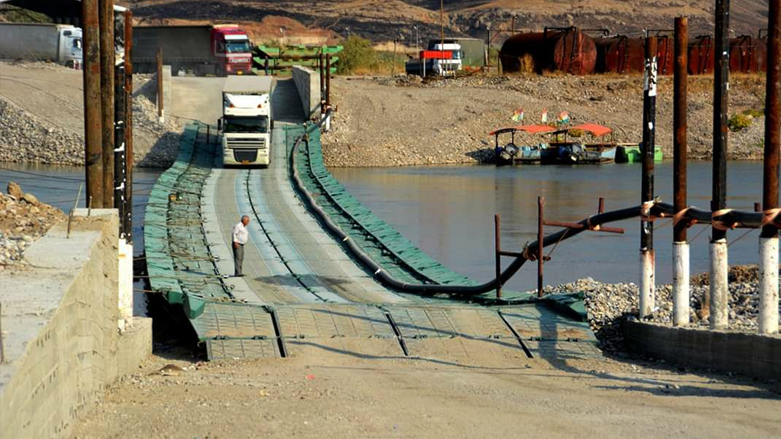EU aid organization expresses worries over aid to northern Syria

ERBIL (Kurdistan 24) – The European Commission's Directorate-General for European Civil Protection and Humanitarian Aid Operations (ECHO) expressed worries over the closure of the Fishkhabour-Semalka between Syrian Kurdistan (Northern Syria) and the Kurdistan Region of Iraq on Wednesday.
"As of 22 December, several shipments of essential life-saving health supplies supporting several health facilities in camps and out-of-camp settings are stuck at the border," ECHO, the European Union's aid organization, warned.
"The closure of the Fishkhabour-Semalka border crossing risks having a significant impact on the humanitarian operation in Northeast Syria assisting 1.8 million people."
According to a press release by ECHO, the Kurdistan Regional Government (KRG) closed the Fishkhabour-Semalka border crossing until further notice for all actors, including NGOs (non-governmental organizations), after tensions at the border.
It said there were "clashes between the Revolutionary Youth Union, the youth wing of the Democratic Union Party (PYD) and the Kurdistan Regional Government (KRG) security forces on 15 December."
During tensions near the border between Syrian Kurdistan and the Kurdistan Region, a number of Kurdistan Region border guards were injured after protestors reportedly assaulted the border crossing.
The KRG allowed international staff to leave Syria through the Al-Yaroubiah border crossing for one day (Thursday, Dec. 23). However, crossing back into Syria will not be possible.
"DG ECHO will continue advocating for humanitarian exemptions to allow life-saving commodities to be sent to Syria and to facilitate the movement of international aid workers in and out of Syria," ECHO said.
Semalka is the main lifeline for areas controlled by the Autonomous Administration of Northeast Syria (AANES) due to its importance in the commercial movement between the Kurdistan Region and Rojava (Syrian Kurdistan).
In the past, the border had from time to time been closed due to political tensions, the COVID-19 pandemic, high water flows, and other reasons.
The Kurdistan Region is essential for many Rojava residents, especially for medical treatment and humanitarian relief.
Semalka was temporarily closed during the beginning of the COVID-19 pandemic in 2020. The border was again temporarily closed by the AANES for supposed 'technical reasons' in June 2021.
